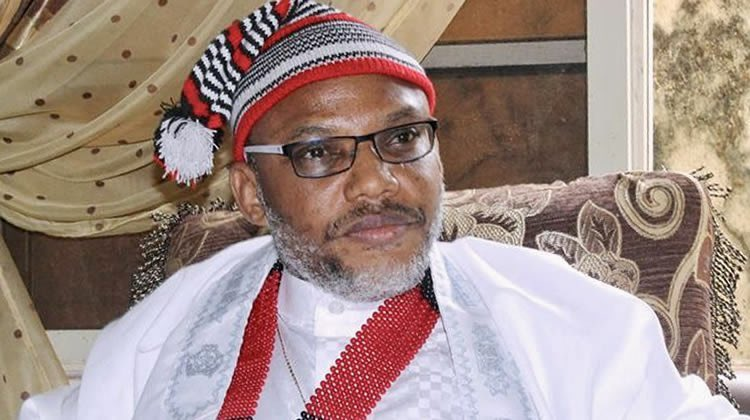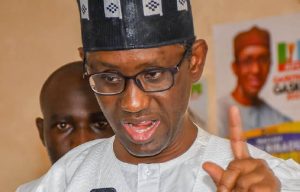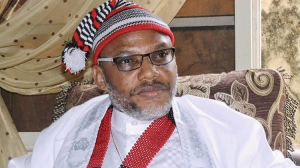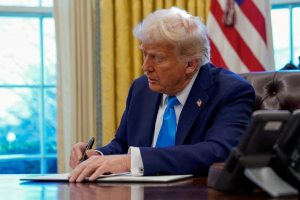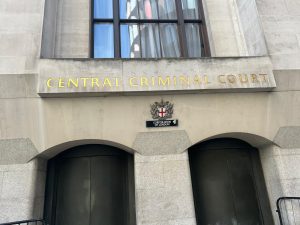Abuja, 22 October 2025 – Detained leader of the Indigenous People of Biafra, IPOB, Nnamdi Kanu, has named former Attorney-General of the Federation Abubakar Malami and a host of high-profile figures as witnesses in his ongoing terrorism trial at the Federal High Court in Abuja.
In a motion personally signed and filed by Kanu before Justice James Omotosho, the IPOB leader expressed readiness to commence his defence, as directed by the court. The application, marked FHC/ABJ/CR/383/2015, was dated 20 October and filed on 21 October. It is titled: “Notice of Number and Names of Witnesses to be Called by the Defendant and Request for Witness Summons/Subpoena and the Variation of the Time Within Which to Defend the Counts/Charges against the Defendant.”
The motion follows a court order issued on 16 October 2025, instructing Kanu to begin his defence on 24 October 2025. Kanu informed the court that he intends to call a total of 23 witnesses, categorised into two groups: “ordinary but material witnesses” and “vital and compellable” witnesses, the latter to be summoned under Section 232 of the Evidence Act, 2011.
Among the compellable witnesses listed are Federal Capital Territory Minister Nyesom Wike; retired former Minister of Defence General Theophilus Danjuma; retired former Chief of Army Staff General Tukur Buratai; Lagos State Governor Babajide Sanwo-Olu; Imo State Governor Hope Uzodimma; Minister of Works Dave Umahi; former Abia State Governor Okezie Ikpeazu; former Director-General of the National Intelligence Agency Ahmed Rufai Abubakar; and former Director-General of the Department of State Services Yusuf Bichi. Kanu also indicated plans to summon several unnamed individuals.
Kanu requested a 90-day extension to conclude his defence, citing the significant number and prominence of the witnesses. He assured the court that he would testify on his own behalf, providing a sworn statement to deny the allegations and elucidate the political context surrounding his statements and actions.
In the filing, Kanu committed to supplying sworn statements from all voluntary witnesses to the court and notifying the prosecution in a timely manner. He emphasised that “no precious time of the honourable court would be delayed” and that the process would ensure “justice is not only done but manifestly seen to have been done.”
This development comes amid heightened tensions, including a protest in Abuja demanding Kanu’s release, which led to the arrest of his brother Emmanuel Kanu, his special counsel Aloy Ejimakor, and several others. Reports suggest Kanu has dismissed his legal team and opted to represent himself in the trial.
The motion was submitted shortly after Kanu filed a preliminary objection challenging the court’s jurisdiction to proceed with the trial. On the same day, a court-appointed medical panel reported that Kanu is fit to stand trial.
Kanu’s trial has drawn widespread attention, with critics accusing the government of political persecution. The case continues to spark debates on separatism, free speech, and human rights in Nigeria.

